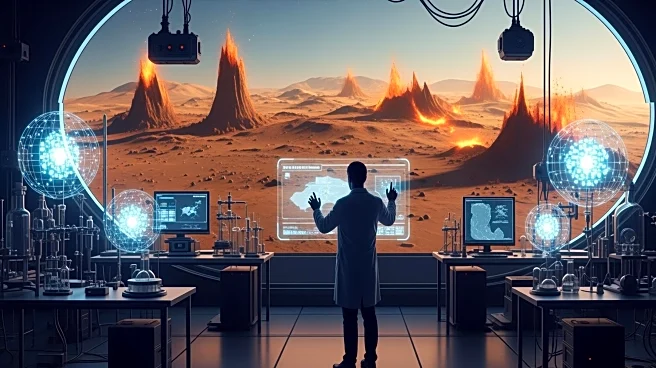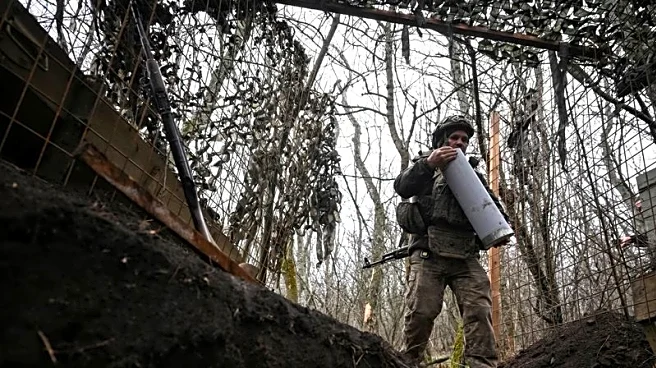What's Happening?
Dr. Lonneke Roelofs from Utrecht University has conducted laboratory experiments revealing that blocks of frozen carbon dioxide (CO2 ice) can carve gullies into Martian dunes. This discovery was made by simulating Martian conditions in a 'Mars chamber'
at the Open University in Milton Keynes. During the Martian winter, temperatures drop to minus 120 degrees Celsius, causing ice to accumulate on dunes. As spring arrives, the sun warms the slopes, leading to sublimation where the underside of CO2 ice blocks turns to gas, creating pressure that blasts sand away and forms gullies. This process, previously suspected but not directly observed, mimics the natural formations seen on Mars.
Why It's Important?
The findings provide significant insights into Martian geological processes, enhancing our understanding of the planet's surface dynamics. This research could inform future Mars exploration missions, potentially aiding in the search for signs of past life by understanding the planet's environmental history. The study also offers a unique perspective on geological processes, which could have implications for understanding similar phenomena on Earth. The ability to replicate Martian conditions and observe these processes in a controlled environment marks a breakthrough in planetary science.
What's Next?
Further research may focus on exploring other Martian surface features and their formation processes. Scientists might use these findings to refine models of Mars' climate and geological history, potentially influencing the design of future missions aimed at exploring the planet's surface. The study could also inspire similar experiments to investigate other extraterrestrial landscapes, broadening our understanding of planetary geology.
Beyond the Headlines
This research highlights the importance of interdisciplinary collaboration in planetary science, combining geology, physics, and environmental science to solve complex problems. It also underscores the value of simulating extraterrestrial conditions to gain insights into processes that cannot be directly observed. The study may prompt ethical discussions about the implications of discovering life-supporting conditions on Mars and the responsibilities of future exploration.
















